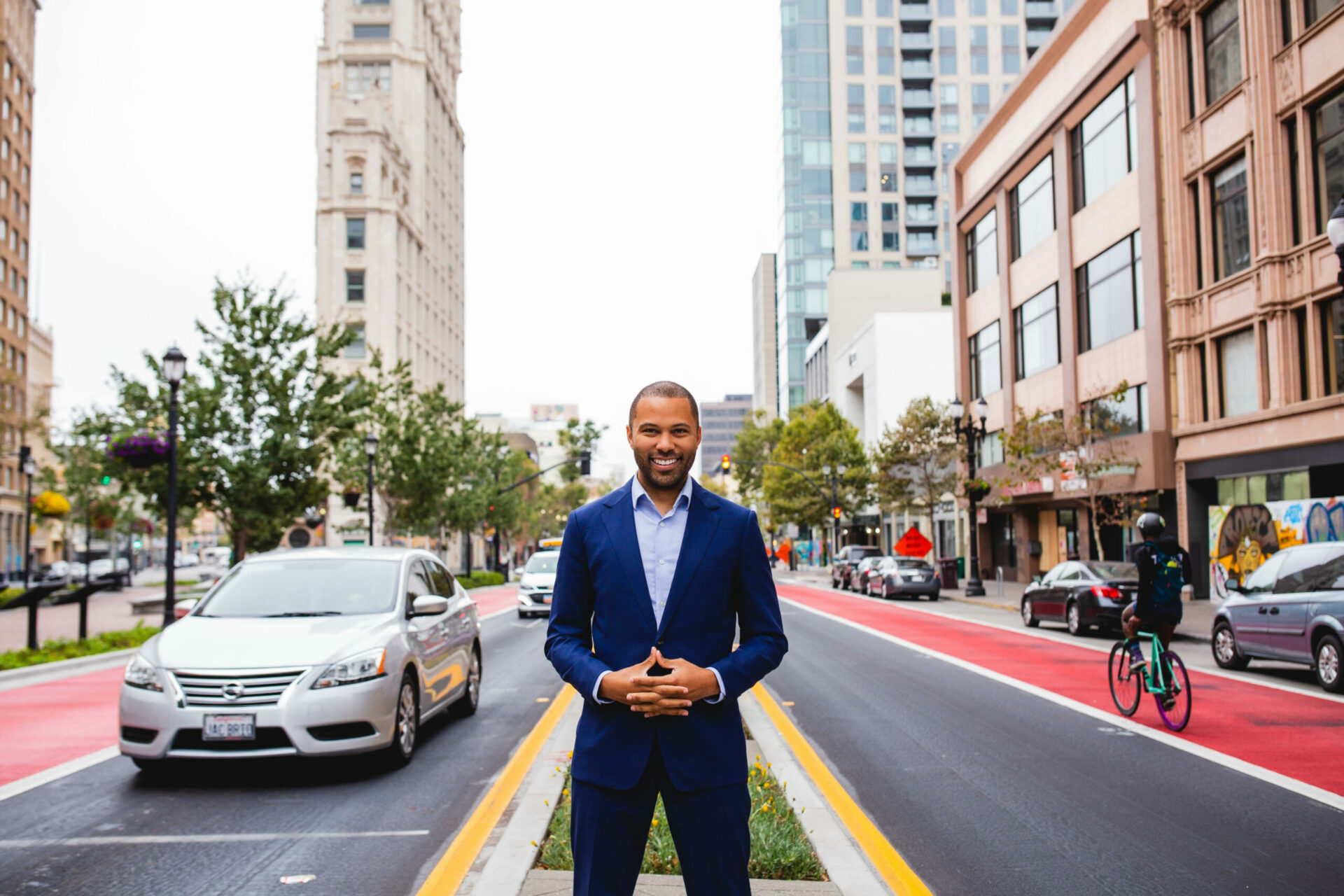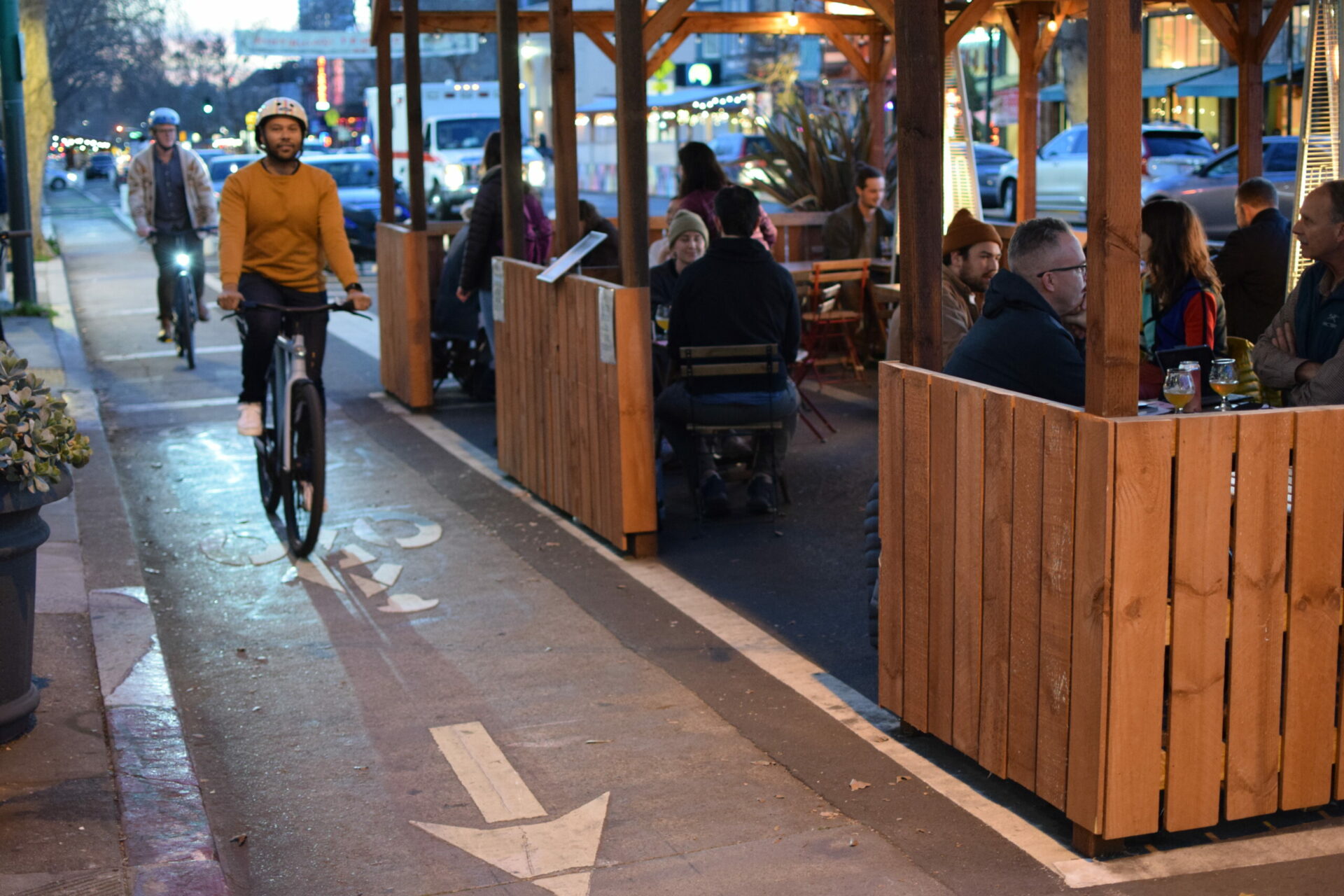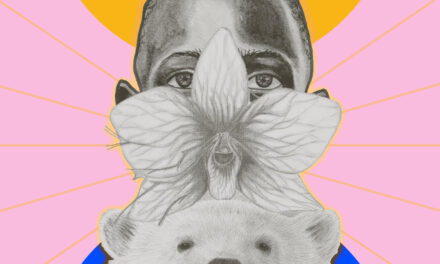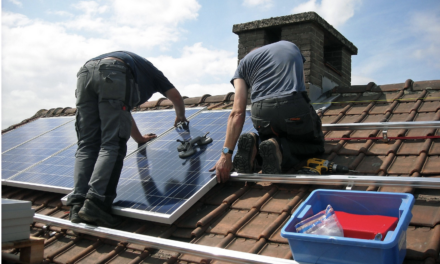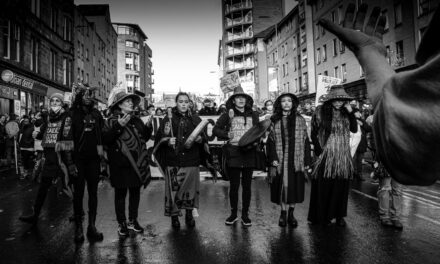Warren Logan’s Fight for Safer Streets
Warren Logan is confident that if we fight for safer streets, we can have them. As the former Policy Director of Mobility and Interagency Relations with the City of Oakland, Logan has played an instrumental role in fighting for safe, bikeable, and walkable streets throughout the city.
“In Oakland, by the numbers, you are more likely to be hit by a car than cancer or a stray bullet,” says Logan.
According to a 2018 Oakland Equity Indicators Report, the City of Oakland experiences approximately two severe or fatal traffic crashes each week, which disproportionately impact those who are Black, Indigenous, or people of color (BIPOC), high priority communities, and seniors.
During Logan’s tenure with the City of Oakland, he directly addressed the issue he was most passionate about: transportation equity. He strongly advocated for the Safe Oakland Streets (SOS) Initiative as an emergency response to the pandemic and traffic safety concerns.
“Black and brown people are taught to accept what is in front of them,” says Logan. “We and everybody deserve more.”
From implementing traffic safety projects to conducting citywide crash analyses, Warren made BIPOC communities a priority and increased the participation of the most impacted residents in community meetings. He also worked with communities and local businesses on Oakland Slow Streets, which designates certain blocks for use by bikers and pedestrians only.
Logan cycling down a protected bike lane in Oakland’s Temescal Neighborhood. Photo: Kerby Olsen, City of Oakland.
After six months with the Oakland’s Mayor’s Office, the COVID-19 pandemic started. Logan took on a second role, serving as Oakland’s Emergency Response Director and Community Resilience Officer.
Through this new position, Logan was able to apply traffic safety to other emerging issues such as the need for more public open space. For example, Logan advocated to remove the I-980 freeway, which has historically divided West Oakland from the city’s main downtown.
“In two years, we were able to turn this project from a pipe dream to a million-dollar state-sponsored concept study. It is now someone’s actual job to figure out what will happen to this freeway,” says Logan.
Logan’s passion for community reflects his family’s long history of civic engagement. His grandfather, Theophilus Logan, currently 105 years old, was instrumental in supporting Black families trying to purchase homes in Southern California as the first African-American Board of Realtors president.
“Every person in my family asks: how do we help the people around us?” says Logan. “My answer: I try to think about the upstream issues and ask the ‘why’ questions to get to the heart of things.”
After two years with the City of Oakland, Logan joined Lighthouse Public Affairs. This California-based consulting firm tries to foster collaborative relationships between government, neighborhood leaders, and private stakeholders so they can tackle big challenges, such as climate change, affordable housing, and equitable mobility, together.
In the middle of one of the hottest years on record, Logan says he wants to fight the idea that there is nothing we can do about climate change. “I hope that we take hyperlocal action [to increase our] climate resilience,” says Logan. “We are somewhere between a sinking ship and melting iceberg, but I want to prove to people that we can dream again.”
Other Recent Posts
Slow Progress on Shade For California’s Hottest Desert Towns
Coachella Valley communities face record temperatures with little shade. Policy changes lag as local groups push for heat equity.
In Uncertain Times, the Port of Oakland Goes Electric
A $322M grant powers Oakland’s port electrification — cleaning air, cutting emissions, and investing in community justice.
Testing Adaptation Limits: Mariposa Trails, Marin Roads & San Francisco Greenspace
In KneeDeep’s new column, The Practice, we daylight how designers, engineers and planners are helping communities adapt to a changing climate.
ReaderBoard
Once a month we share reader announcements: jobs, events, reports, and more.
Boxes of Mud Could Tell a Hopeful Sediment Story
Scientists are testing whether dredged sediment placed in nearby shallows can help our wetlands keep pace with rising seas. Tiny tracers may reveal the answer.
“I Invite Everyone To Be a Scientist”
Plant tissue culture can help endangered species adapt to climate change. Amateur plant biologist Jasmine Neal’s community lab could make this tech more accessible.
How To Explain Extreme Weather Without the Fear Factor
Fear-based messaging about extreme weather can backfire. Here are some simple metaphors to explain climate change.
Live Near a Tiny Library? Join Our Citizen Marketing Campaign
KneeDeep asks readers to place paper zines in tiny street libraries to help us reach new folks.
Join KneeDeep Times for Lightning Talks with 8 Local Reporters at SF Climate Week
Lightning Talks with 8 Reporters for SF Climate Week
Staying Wise About Fire – 5 Years Post-CZU
As insurance companies pull out and wildfire seasons intensify, Santa Cruz County residents navigate the complexities of staying fire-ready.






